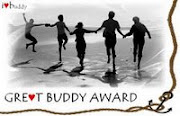
This is part of a chapter from my book, CHRYSALIS, an old book, now out-of-print but still floating around on Amazon.com:
Doctor Sontag, excising a second spot for biopsy under local anesthesia, makes a small incision in my arm and accidentally severs an artery. Blood spurts, and spurts, and spurts with each heartbeat, covering his gloves, his chest, his table, his nurse, and his wall.
"Oooops," he says, never dropping a stitch, never losing his poise.
I am embarrassed at having made such a mess, although I know very well it was not my fault. The nurse, in a stiffening red gown, applies a pressure bandage to my incision to stop the profuse bleeding.
In prehistoric days, the skulls of ancient men were trepanned, presumably without anesthetic, to combat headaches, epilepsy, and to obtain polished roundels for use as good-luck amulets. Some skulls show as many as seven holes. Apparently many of them survived the surgery. It was not always easy for the surgeons, either. According to the Code of Hammurabi, laws inscribed on stone dictated that if a surgeon caused the death of a man, his fingers would be cut off. Such a law must have made physicians more careful -- or maybe the prints of mutilated hands and evidence of chopped-off fingers in Mark's A Study of Human Skeletal Remains were not a magical appeasement for ancient gods or devils, as the book supposes, but evidence of clumsy surgeons.
Medieval and Renaissance surgeries, like prehistoric operations, were bloodbaths. People died screaming in hideous agony, while surgeons literally tore their bodies apart. They still die screaming. Such pain obliterates all embarrassment. It is this indignity that frightens me most. Death, I might be able to handle. But unrelenting, terrible pain and gradual deterioration -- never. Perhaps Longfellow was right saying, "Whom the gods wish to destroy, they first make mad."
Jenny said once, "It's so hard to keep appreciating what you have, day to day. But there are very few things that cannot be overcome by a strong-willed person."
Death is one. In the dreamless times between dark and dawn, in the quiet nights of ticking clocks it comes to us, and we can't be indifferent. It is possible some things have no meaning. But I keep trying to find one.
(Surgeons are better equipped nowadays. Your fingers are in better hands -- if you will pardon the pun -- and you do quite well at documentary reporting. The above was my own method of documentary reporting. I didn't have a camera at the time, many years ago. And I lived to tell the tale.)












2 comments:
my gracious. thank you. that was wonderful.
i think back to those sufferers of days gone by and it helps me today. we're so very fortunate, really. look at us: we're alive. and not just that: really living.
i want to get your book and read it. but i need more info to find it on amazon. can you email me?
Post a Comment